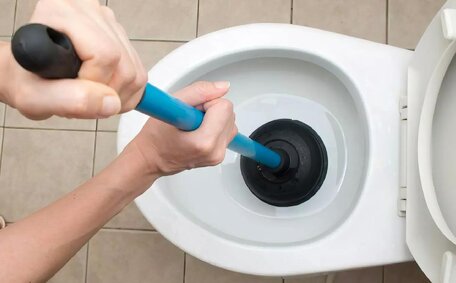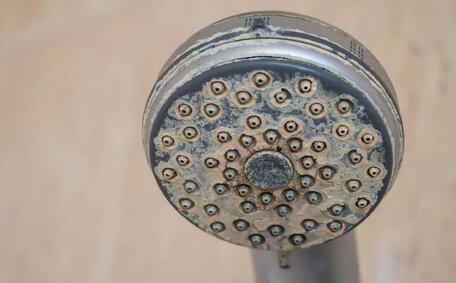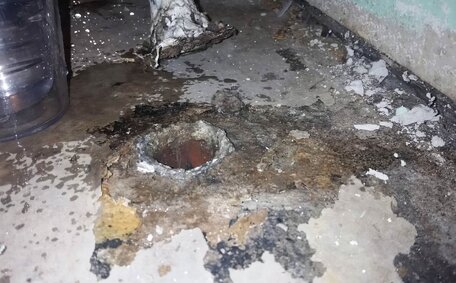Introduction to Hot Water Systems
Having a reliable hot water system is essential for every home and business. There are several types of hot water systems to choose from, each with their own pros and cons.
Hot water is something most of us take for granted, but it’s a modern necessity we depend on daily for bathing, washing, cooking and more.
The most common options for homes are electric, gas, heat pump and solar hot water systems. Electric systems use heating elements to warm the water, while gas systems rely on natural gas or LPG to heat the water in a storage tank. Heat pump and solar systems use newer technologies to harvest heat for water heating in an energy-efficient way.
When choosing a hot water system, it’s important to consider factors like upfront costs, energy efficiency, maintenance needs, environmental impact and more. Consulting with a professional plumber can help determine the best system for your home’s needs and budget.
Regardless of the type, a properly installed and maintained hot water system should provide a steady supply of hot water for all your needs. We’ll walk through the key options to consider for your home or business so you can make an informed decision.
Average Costs of Hot Water System Installation
Installing a new hot water system or replacing an existing one can cost anywhere from $600 up to $5400 depending on the type of system:
- Electric hot water systems - $600 to $1600
- Gas hot water systems - $750 to $1900
- Solar hot water systems - $3800 to $5400
- Heat pump hot water systems - Start at $3800
Other factors that affect overall installation costs include:
- Delivery fees for the new system
- Removal and disposal fees for the old system
- Installation costs from a plumber, usually $90 - $100 per hour
- Government rebates which can deduct $1000 or more
To get an accurate estimate for your specific needs, consult with a qualified and trusted plumber. They will assess your current setup, household size, usage patterns and recommend the most suitable and cost-effective hot water system solution.
Factors That Affect Installation Costs
When budgeting for a new hot water system installation, several key factors affect the overall cost:
Type of System
The type of hot water system itself is the biggest cost factor. Systems that run on gas or electricity are the most affordable options. More advanced systems like solar, heat pump and tankless systems have higher upfront costs due to the technology and parts involved.
Size of System
Larger households and commercial properties require bigger systems that hold more water capacity. The installation costs will be higher compared to smaller systems for 1-2 person households.
Location and Delivery Fees
Delivery fees can add a few hundred dollars depending on the distance the system needs to be transported. Installation costs also vary slightly by region.
Removal of Old System
Properly removing and disposing of the old water heating system often incurs additional fees. New regulations have rules about safely disposing of old systems.
Plumber Fees
Most plumbers charge $90 - $100 per hour for installation of a new system. More complex setups take longer and cost more in labour.
Carefully factoring in these costs allows you to budget accurately and avoid any surprise charges. Consult with a professional plumber to receive a detailed quote for your specific hot water system installation.
Type of Hot Water System
Electric Hot Water Systems
Electric hot water systems use electric heating elements to heat water stored in an insulated tank. They are one of the most popular options due to low upfront costs of $600 - $1600. Electric systems have responsive recovery times and are easy to install and maintain.
Gas Hot Water Systems
Gas systems use natural gas or LPG to heat water in an insulated storage tank. They are also very common and cost $750 - $1900 installed. Gas systems heat water faster than electric and have lower operating costs, but need more safety maintenance.
Solar Hot Water Systems
Solar hot water systems use roof panels to absorb heat from the sun, which is transferred to heat water stored in a tank. Solar hot water costs between $3800 - $5400 but has very low running costs. Solar is an eco-friendly option but relies on sunny weather.
Heat Pump Hot Water Systems
Heat pumps use a compressor and refrigerant gas to extract heat from the air to warm water. They are energy efficient but have higher upfront costs of $3800+. Heat pumps work well in cool climates and have government rebates available.
When choosing the right type of hot water system, consider factors like your budget, energy usage needs, and environmental impact. Consult with qualified plumbers to determine the optimal system for your home.
Size of System Needed
Determining the appropriate size of hot water system for your home depends on a few key factors:
Number of PeopleConsider how many family members live in the house full-time. More people means more showers, laundry, dishes, etc. requiring hot water. As a general guideline:
- 2-3 people - 120L to 170L system
- 4 people - 200L+ system
- 5+ people - 250L+ or multiple systems
Peak Usage TimesUsage is higher in mornings and evenings when most people shower. Consider when hot water demands peak to ensure the system can handle maximum flow.
Type of HouseholdHouses with children who take baths or families who use hot water for frequent cooking and cleaning may need a bigger system.
Climatep>p>p>
Additional Plumbing or Electrical Work Required
p>Installing a new hot water system often requires additional plumbing or electrical work. Here are some common requirements that can add to the overall installation costs:
Electrical UpgradesElectric hot water systems or heat pumps may need upgraded electrical wiring, a new circuit breaker, or higher amperage to handle the electrical load. Rewiring or an electrical panel upgrade adds $1000+ to costs.
Gas Line Installation If you’re switching to a gas hot water system, a gas line may need to be installed if the home currently runs on electric only. Running a new gas line and getting it connected can add around $2000 depending on the complexity.
Venting RequirementsGas, solar and heat pump systems need proper venting for exhaust. Installing new vents or ducting can cost $200-$500 in labour and parts.
Pipe Modificationsp>p>p>
Delivery and Accessibility
Delivery fees can vary depending on the size and weight of the new hot water system. Larger units with heavy tanks will cost more to transport to your home.
Accessibility is also a factor during installation. The plumber may need to use special equipment to manoeuvre the new system into place if there are narrow doorways or tricky installations areas. If a crane is required to lift the system onto the roof or upper floors, this can also increase costs.
Careful planning is required by your plumber to find the optimal installation location and route to minimise delivery and accessibility issues. For complex installations, additional labour and specialised equipment fees ranging from $200 - $500 may apply.
Discuss any potential delivery or accessibility challenges with your plumber ahead of installation. They will be able to advise on the best solution to safely and effectively get your new system up and running.
Removal and Disposal of Old System
When installing a new hot water system, the old unit must be properly removed and disposed of. Here’s what’s involved in this process:
Removal
A plumber will disconnect the old system from water and power sources. Any venting or exhaust ducting will also be detached. Any venting or exhaust ducting will also be detached. If it’s a large tank unit, special equipment may be needed to haul it outside.
Disposal
There are strict rules about disposing of old hot water systems due to the materials they contain. Tanks can’t be sent to landfill. Plumbers use licenced disposal services to recycle and scrap the units.
Removal and disposal fees range from $200-$500 depending on the system size, material, and disposal process. Always hire qualified professionals to handle this part of the installation. Attempting DIY removal of old systems is dangerous.
With the proper equipment and disposal service, your plumber will take care of removing the outdated system in a safe, eco-friendly manner.
Installation by a Professional vs DIY
When it comes to installing a new hot water system, you have two main options - hiring a professional plumber or attempting a DIY installation. Both routes have their own pros and cons.
Professional InstallationHaving a licenced plumber handle the system installation ensures the job is done properly and safely. Professionals have extensive training and experience fitting all types of hot water systems. They can provide guidance on selecting the best system for your needs and budget. Plumbers also have the right tools and expertise to remove old systems and modify any plumbing or gas connections required.
While professional installation has a higher upfront cost, paying a plumber ensures the system is configured optimally for efficiency and performance. You also gain peace of mind knowing dangerous gas or electrical work has been handled safely by a skilled expert. Proper installation minimises the risk of leaks, faults or other issues down the track.
DIY Installationp>p>p>p>p>
Finding a Reliable Plumber
p>
Government Rebates and Incentives
The government offers several rebates and incentives to lower the cost of installing energy-efficient hot water systems in your home.
Solar Hot Water Rebate
For installing an eligible solar hot water system, you can receive a rebate up to $1000 from the government. Larger households can qualify for up to $1600 back. This significantly offsets the higher upfront cost of solar hot water.
Renewable Energy Certificates
When you install a solar hot water system, you are eligible to create renewable energy certificates (RECs) for the amount of renewable energy your system generates. You can then sell these RECs to others looking to offset their energy usage.
Managed Electricity Plans
Some states offer managed electricity plans where you receive generous feed-in tariffs for any excess power generated by your heat pump or electrical hot water system. Any extra electricity you produce is sold back to the grid for credit.
Low-Interest Loans
Depending on your location, you may qualify for low-interest loans or finance for the purchase and installation of energy efficient hot water systems. This can greatly reduce the upfront payments.
It’s worth exploring all available rebates, grants and incentives when installing a new hot water system. Your local plumber can advise you on which ones you may be eligible for.
Tips for Reducing Costs
p>p>p>






